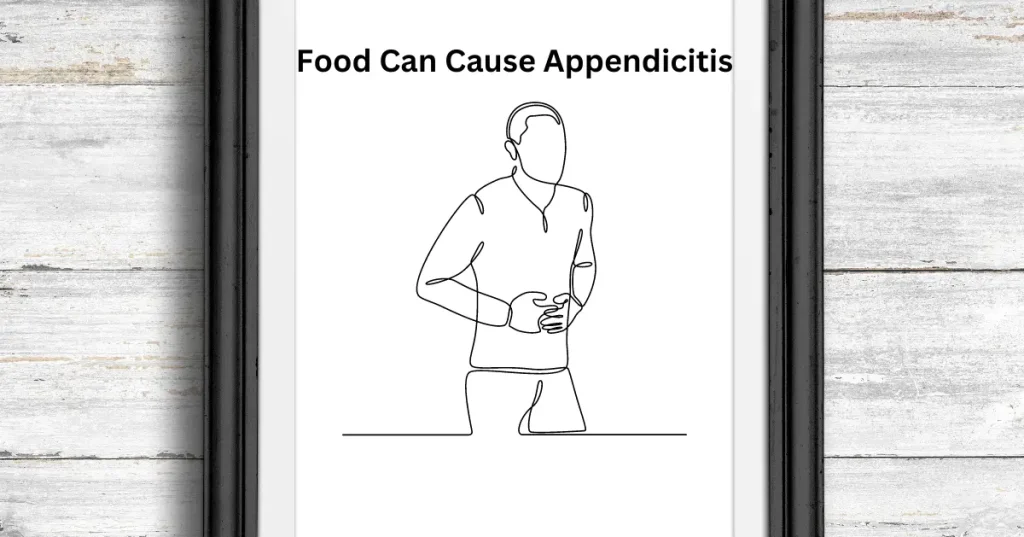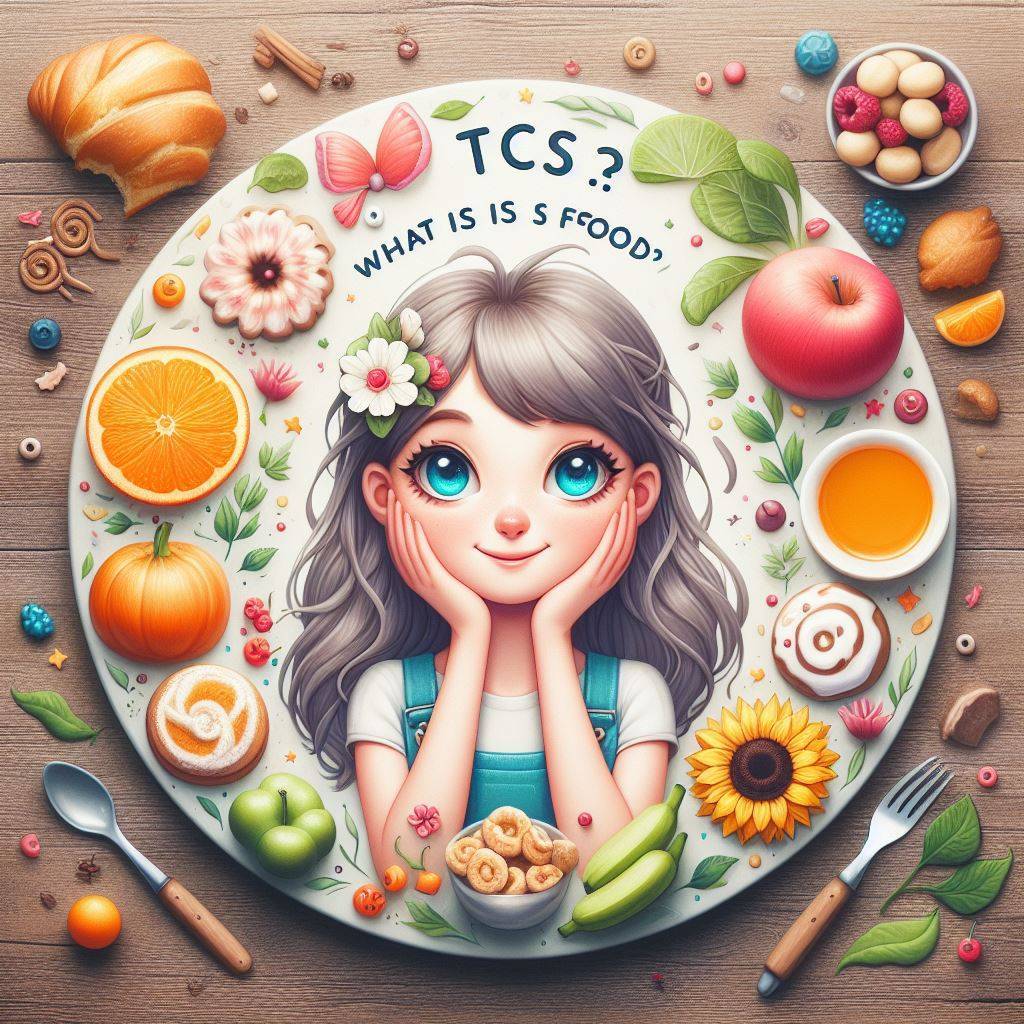Appendicitis is a painful condition that occurs when the appendix becomes inflamed and infected. The appendix is a small pouch-like structure attached to the large intestine on the lower right side of the abdomen.
While there are several potential causes of appendicitis, one common question many people have is what food can cause this condition. In general, there are no specific foods that directly cause appendicitis. However, certain foods can increase your risk of developing the condition.
High-Fat Foods
One potential cause of appendicitis is a high-fat diet. Consuming too many fatty and greasy foods can lead to inflammation and blockage in the appendix. This is because these foods are more difficult for the body to digest, and can increase the workload on the digestive system. Over time, this can lead to an increased risk of developing appendicitis.
Processed Foods
In addition to high-fat foods, processed foods can also contribute to the development of appendicitis. These foods are often high in preservatives and additives that can irritate the lining of the appendix and cause inflammation. It’s important to limit your intake of processed foods and focus on whole, unprocessed foods for better digestive health.
Dairy Products
While dairy products are not a direct cause of appendicitis, they can worsen symptoms in individuals who already have the condition. This is because dairy products can be difficult for the body to digest, and they may also contribute to inflammation in the body. If you have a history of appendicitis or are experiencing symptoms, it’s best to avoid or limit your intake of dairy products.
Spicy Foods
Spicy foods can also be a potential trigger for appendicitis. These foods can irritate the digestive system and lead to inflammation in the appendix. For individuals who are already at risk for developing appendicitis, consuming spicy foods can increase their chances of experiencing an episode. It’s best to limit your intake of spicy foods or avoid them altogether if you have a history of appendicitis.
What foods trigger appendicitis?
While there are no specific foods that directly cause appendicitis, it’s important to be mindful of your diet and avoid foods that can increase your risk or worsen symptoms. This includes high-fat and processed foods, dairy products, and spicy foods. Instead, focus on a balanced diet rich in fruits, vegetables, whole grains, and lean proteins to support overall digestive health. Additionally, staying hydrated and getting regular exercise can also help prevent digestive issues and potential episodes of appendicitis. If you experience any symptoms of appendicitis, such as abdominal pain or nausea, it’s important to seek medical attention immediately for proper diagnosis and treatment. By being mindful of your diet and overall lifestyle, you can reduce your risk of developing appendicitis and promote better digestive health.
What can clog your appendix?
Several factors can contribute to the clogging or blockage of the appendix, leading to appendicitis. These include:
- Fecal matter: The appendix is connected to the large intestine, and if fecal matter becomes trapped inside it due to constipation or other digestive issues, it can lead to inflammation and infection.
- Enlarged lymphoid follicles: The appendix contains lymphoid tissue that helps fight against infections. However, when these tissues become enlarged due to infection or inflammation, they can block the opening of the appendix.
- Tumors: In rare cases, tumors in the digestive tract can clog or obstruct the appendix and lead to appendicitis.
- Foreign objects: Sometimes, foreign objects such as food particles or parasites can also enter the appendix and cause obstruction.
It’s important to note that these factors alone may not necessarily cause appendicitis, but when combined with other risk factors such as a high-fat diet or underlying medical conditions, they can increase the likelihood of developing the condition. Maintaining a healthy lifestyle and being aware of potential triggers can help prevent clogging in the appendix and reduce the risk of appendicitis. Overall, while there is no specific food that causes appendicitis, having a balanced diet and practicing good digestive health can play a crucial role in preventing this painful condition. Keeping these factors in mind and seeking medical attention for any concerning symptoms can help ensure your appendix stays healthy and functioning properly.
Frequently Asked Questions
- Can I get appendicitis from eating certain foods?
While there are no specific foods that have been proven to directly cause appendicitis, a diet high in fat, processed foods, dairy products, and spicy foods can increase your risk of developing the condition.
- Are there any preventative measures I can take to avoid appendicitis?
Maintaining a balanced diet rich in fruits, vegetables, whole grains, and lean proteins can support your overall digestive health and may help lower your risk of appendicitis. Regular exercise and staying hydrated are also crucial.
- What are the symptoms of appendicitis?
Symptoms of appendicitis can include sudden pain that begins on the right side of the lower abdomen, sudden pain that begins around your navel and often shifts to your lower right abdomen, nausea, vomiting, constipation or diarrhea, and fever.
- What should I do if I think I have appendicitis?
If you’re experiencing symptoms that you suspect may be appendicitis, it’s important to seek medical attention immediately. Appendicitis is a medical emergency that typically requires surgery.
- Are certain people more prone to developing appendicitis?
While appendicitis can occur at any age, it most often affects people between the ages of 10 and 30. Factors such as a high-fat diet and certain genetic conditions can also increase the risk of developing appendicitis.
Conclusion
While there are no specific foods that directly cause appendicitis, maintaining a healthy and balanced diet is crucial for preventing the condition. It’s important to limit your intake of high-fat and processed foods, as well as dairy products and spicy foods. Instead, focus on incorporating more whole, unprocessed foods into your diet to support optimal digestive health and reduce your risk of developing appendicitis. Remember to also stay hydrated and listen to your body’s cues for hunger and fullness. By making small changes in your diet, you can help protect yourself against appendicitis and promote overall well-being.



Несомненно важные новинки подиума.
Важные новости лучших подуимов.
Модные дома, бренды, гедонизм.
Самое лучшее место для стильныех хайпбистов.
https://rftimes.ru/news/2024-07-05-teplye-istorii-brend-herno